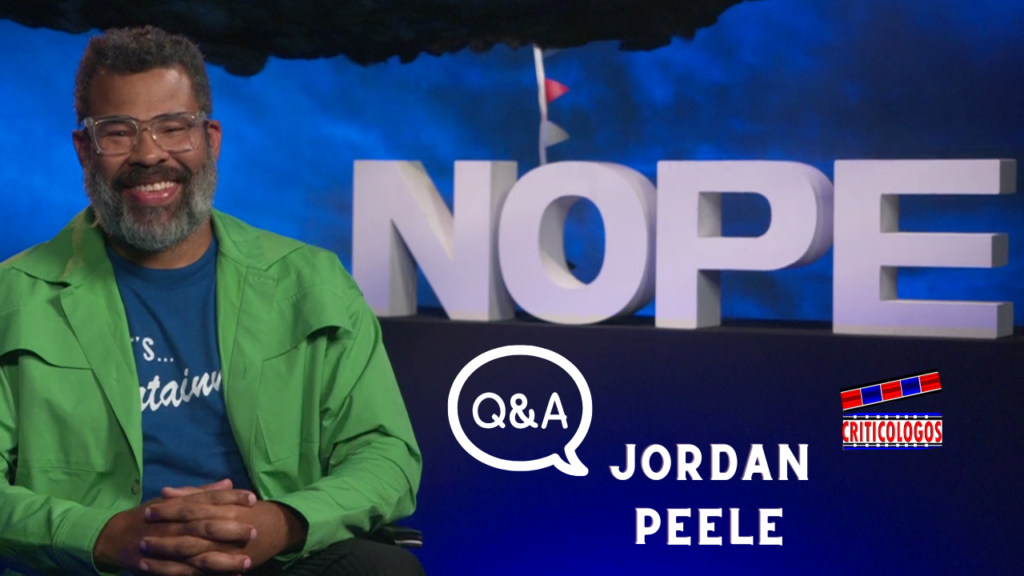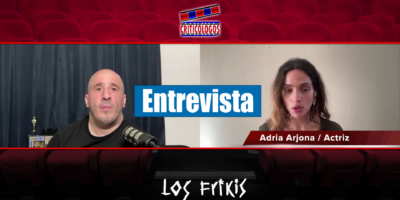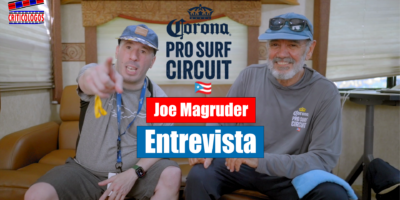
A chat with “NOPE” movie writer and director Jordan Peele, as he speaks on diving into the unknown, building tensions and going for the IMAX experience.
What inspired you to write and make this movie?
Jordan Peele:
So many things, you know, as you can as you can tell, it’s quite full. And I think, you know, I’ll answer it in a simple way, which is I always look for something that doesn’t exist for a film that I wish I could see for the first time. And in this case, it was it was a truly horrifying UFO film that in which we’re really able to be immersed into the situation. Like some of my favorite films. So, yeah, that was the nugget. And I was like, you know, I got I got to make this. I, in fact, I have a responsibility to movies to make this movie.
The film is visually absolutely stunning and you have an amazing cinematographer, but the way you’ve captured using these IMAX cameras and large lens camera, you’ve really, really given us a spectacle here that visually is like nothing that we’ve seen, can you please expand on that subject?
Jordan Peele:
There are is a lot of credit to go around when it comes to the beauty of this movie. Ruthy Young, our production designer, just did something in a horror film I’ve never seen. Hoyte van Hoytema, who you bring up the cinematographer, is did some things in this movie that, you know, haven’t been done before. And the project I brought him, the script I brought him, I said, buddy, I don’t know how to put this is there’s a lot in here that’s never been done. And, you know, we sat together and he had some great ideas and we yeah, it was one of the great collaborations of my career so far.
Could you elaborate on the position of dividing the movie into chapters that begin with names?
Jordan Peele:
Hmm. Yes. There’s there are name cards. And, you know, without going too deep into the, you know, what that’s about or or y you know, I think. Part of the thing is that I think nope, it feels different structurally to other films and there are departures from traditional storytelling in it. And I felt that the the name cards helped an audience know how to watch the film and to know that this was not going to be the, the most straightforward style narrative that it was going to. Exist in a movie where you had to pay attention in a different way.
In your previous two films, you explored various social and political themes to the horror prison for this outing. What made you venture into the science fiction game?

Jordan Peele:
Well. You know, I always feel I’m in some way in the science fiction game just in in that, you know, I, I always like to marry with a little bit of of science fiction with with reality of of what of what if ness. You know, the I. I guess I don’t know how to answer the question, except to say that the genre questions get harder and harder as I go on with my career to know how to answer. I’m not offended by them, but they’re harder and harder because, you know, I think the the hopefully the notes that come out in this in these movies and I think what happens in Knope is you get something that feels like it has a little bit of everything.
Genre movies and specifically horror movies. They’ve been with us since the dawn of cinema and they’ve been successful. People love that experience of going into movie theater, that communal experience and getting scared. Why do you think that is? And it still works today.
Jordan Peele:
Oh, my gosh. I mean. You know, that’s it. Because I think I think it’s everything. You know, I think that film is one of the ways that we address our fears. And I think that, you know, the thing that is trickiest about fear is such a unpleasant emotion that we fight it as human beings and we suppress it. And any I truly believe that anything that we suppress, anything that we keep down or hold down for long enough, you know, doesn’t go away. It just comes out in worse and worse ways. And there’s something about getting together with a bunch of people and facing those fears in a safe way, in a way where you feel at home and you feel good at the same time, your body needs to release that, that fear. You can’t hold on to it. So that’s why horror movies work.
Each of your films have been ingrained with a deep pocket of tension. But as a student, what directors from whom you’ve studied or have there been films that you felt taught you tricks on how to set up tension and suspense in your own films?
Jordan Peele:
Attention. Look, I think. I think the. I think the. I think there’s a lot of great ones. I think, you know, Brian De Palma is has such great cinematic suspense and the way he can sort of create a set piece where you have an understanding of the geography, you have an understanding of the timing, you have the understanding of whatever everyone is doing. And he can set a clock. That’s something that I’ve I’ve admired.

How did Daniel react when you told him he would have to spend half the movie on a horse?
Jordan Peele:
You know, you have to ask him about it, but not great. No, he’s right. Well, this is what I will say, is that. I’ve never seen an actor work as hard as he did in getting that the horse skills together. And it’s just it’s it’s wonderful to watch his process because from the first you know day I met him on Get Out and I said, you know, this is a you know, I need that accent to be right, though. I need that accent to be again. Another he’s I got you. I got you as I. I don’t know if you got me cause you ain’t.
Yeah, you’re not doing it yet. And then he comes and bam, best, like, flawless, right? And so, yeah, I had trust. And when he’s like, Yeah, I got you. I’m gonna be a horse rider next time you see me. That’s basically that’s what happened.
What lessons did you take from filming this feature that you’ll use in the future?
Jordan Peele:
There’s so many lessons. You know, I think with in terms of the scope, you know, I would just say, yeah, that there’s nothing that is unachievable. I mean, and this would be a message I’d tell myself in the future. I tell myself in the past and I tell any anybody trying to make a film. And is that it? Anything is achievable in this medium. If you if you collaborate. Right. If you find the right team and work together and you can problem solve together, I mean, you can create the most grand illusions, you know, as we’ve seen, you know, since , you know, King Kong back when they didn’t have any of the tools that they that we have now.
It’s just all been all about innovation. And so this was my putting that to the test for myself and for my team. And it was, let’s see how far we can push it. And yeah, I feel like we can continue to go further.





